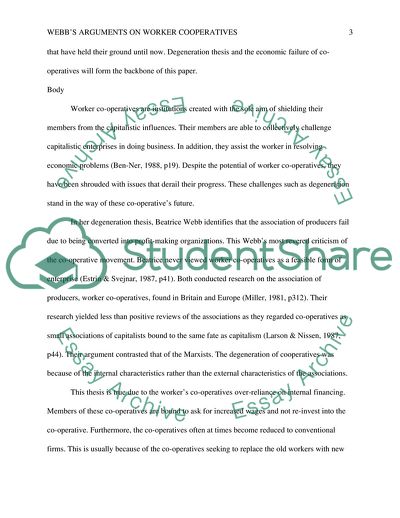Cite this document
(Employee ownership-Evaluate Webb's arguments on worker cooperatives Essay, n.d.)
Employee ownership-Evaluate Webb's arguments on worker cooperatives Essay. https://studentshare.org/human-resources/1825248-employee-ownership-evaluate-webbs-arguments-on-worker-cooperatives
Employee ownership-Evaluate Webb's arguments on worker cooperatives Essay. https://studentshare.org/human-resources/1825248-employee-ownership-evaluate-webbs-arguments-on-worker-cooperatives
(Employee Ownership-Evaluate Webb'S Arguments on Worker Cooperatives Essay)
Employee Ownership-Evaluate Webb'S Arguments on Worker Cooperatives Essay. https://studentshare.org/human-resources/1825248-employee-ownership-evaluate-webbs-arguments-on-worker-cooperatives.
Employee Ownership-Evaluate Webb'S Arguments on Worker Cooperatives Essay. https://studentshare.org/human-resources/1825248-employee-ownership-evaluate-webbs-arguments-on-worker-cooperatives.
“Employee Ownership-Evaluate Webb'S Arguments on Worker Cooperatives Essay”. https://studentshare.org/human-resources/1825248-employee-ownership-evaluate-webbs-arguments-on-worker-cooperatives.


